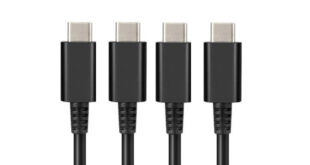Call of Duty: Advanced Warfare is the latest major triple-A franchise to abandon Wii U.
Activision calls it a ‘judgment call,’ and it is a sound judgment. Call of Duty struggled to perform even on Wii, let alone on Wii U with its significantly smaller install base. Why bother investing in such a thing?
On the face of it, it may not seem like a hefty blow to Nintendo. Much like Ubisoft with its Assassin’s Creed series, these core gaming experiences have always struggled to perform on the company’s platforms. People buy Nintendo machines for Nintendo games. It’s not ideal, but it’s always been the way.
Plus Activision and Ubisoft will continue to support Nintendo. Just with their more family-friendly fare such as Skylanders and Just Dance.
Yet it is a blow. Wii U is severely lacking content. I don’t think I’ve ever experienced such a dearth in releases for a machine. Hyrule Warriors out in a month is the first mid-sized Wii U game set for release since Mario Kart in May.
The install base is a serious issue and means it just is not financially viable for most developers to support it. Last week atGamescom, a former QA friend of mine told me a story about a game he was testing. There was a Wii U version and it had quite a few bugs. But rather than fix the bugs and go through a lengthy QA process, they decided to cancel that version of the title. They had already spent money making the Wii U version, but decided fixing bugs just wasn’t worth the cost…
It is also a further blow to the original ‘Wii U’ vision. Nintendo hoped that the Wii U could do something that it has largely failed to do with Wii, and that is attract a core gamer audience. It had hoped publishers would port more of their games from Xbox 360 and PS3 to the Wii U – because it was relatively easy to do so. It had signed Bayonetta to further push its core credentials.
The idea was for Nintendo to win back its fans and grab some of that core gamer cash. But, as shown this week with the news that Assassin’s Creed, FIFA and Call of Duty are not coming to the platform, that has been another big failure.
It may sound bleak, and it’s certainly not great. But at least Nintendo can now streamline its efforts. The marketing deals the firm is signing with the likes of Skylanders, the development of the Amiibo characters, and the new IP it showed at E3, all point to a firm that is starting to target the younger gaming audience. A market that remains up for grabs and largely uncontested.
But if Nintendo does hope to win over the kids and their parents – and with its strong IP and brand heritage, it is certainly capable of doing so – then it really needs to lower that price. 250 – 300 for a machine may be acceptable for a core gaming Call of Duty-playing machine. But for a kids device? It’s just not acceptable.
It sounds like all the industry journalists and analysts are ever doing is telling Nintendo what it should do. And I am crucially aware that ‘lowering the price’ is not a solution that works on its own, nor is it something any business can do lightly when you consider the need to grow profits.
But going after the young gamer market feels like the right move for Nintendo at this point. It will be something third-parties will support and something that retail can get behind.
It won’t save Wii U from being a disappointment, but it could turn the device into a solid base from which Nintendo can rebuild.

 MCV/DEVELOP News, events, research and jobs from the games industry
MCV/DEVELOP News, events, research and jobs from the games industry



